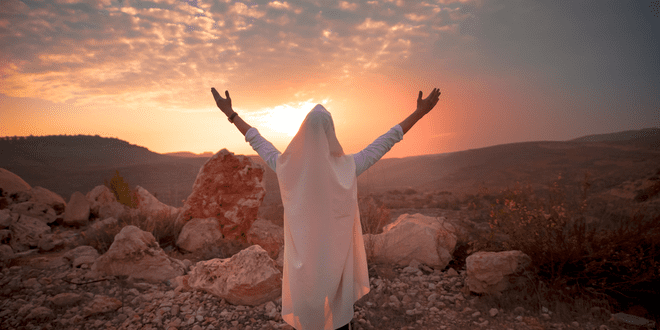We said these words this morning in our prayers—maybe without thinking:
“The nations surrounded me; in the name of the Lord I cut them down.
They surrounded me like bees… but in the name of the Lord I cut them down” (Psalm 118:10–12).
We’ve sung these verses for generations—on festivals, on Rosh Chodesh (the new moon), in times of joy. They’re part of Hallel, the Psalms of praise (Psalms 113–118) that celebrate moments of renewal and divine deliverance.
But today, they don’t feel like poetry. They feel like a headline.
Today is Rosh Chodesh—the first day of the Hebrew month, a time of spiritual awakening and new beginnings. On this day, we recite Hallel, giving thanks for God’s past salvation. But this month, Hallel doesn’t just look backward. It speaks directly to what we are living through right now.
For twelve days, Israel dominated Iran—destroying its air defenses, eliminating key military commanders, and striking at the heart of its nuclear infrastructure. Iran responded with massive ballistic missile attacks. And yet, miraculously, the vast majority of those missiles were shot down. Then came a moment of moral clarity: President Trump ordered the bombing of Iran’s nuclear facilities, dismantling in minutes what the West had failed to stop for decades.
We are watching prophecy unfold—not in theory or metaphor, but in real time.
“The Lord is with me; I will not be afraid. What can man do to me?” (Psalm 118:6).
God promised He would never abandon His people. He promised that in the final chapters of history, He would break the power of those who rise against Israel. We are witnessing the beginning of that unraveling.
And yet, the picture remains painfully incomplete. Missiles did fall. Buildings were reduced to rubble. Families are grieving. Children still wake up crying in the night. Redemption is not clean or quiet—it is complicated, messy, and filled with both awe and anguish.
It’s easy to sing after the dust settles, when everything is whole again. But Hallel was never meant for the end of the story. It was written for the middle—for the battlefield, not just the victory parade. It’s a cry of the soul that can see the miracle even while standing in the ruins.
This is not a moment for silence. This is a moment to declare:
“The Lord is my strength and my song—He has become my salvation” (Psalm 118:14).
“Precious in the sight of the Lord is the death of His faithful ones” (Psalm 116:15).
“You have delivered me from death, my eyes from tears, my feet from stumbling” (Psalm 116:8).
We don’t sing because there’s no pain. We sing through the pain—because we believe our suffering is not meaningless. That the lives lost are seen by Heaven. That our tears are counted. That redemption doesn’t erase sorrow—but transforms it.
And we sing because we see what the world refuses to see:
“The stone the builders rejected has become the cornerstone. This is the Lord’s doing; it is marvelous in our eyes” (Psalm 118:22–23).
For decades, Israel has been mocked, condemned, and isolated. And now it is obvious that Israel is the cornerstone of God’s unfolding plan. A tiny and heroic nation standing firm—not by might, but by covenant.
“Not to us, Lord, not to us, but to Your name be the glory, because of Your love and faithfulness” (Psalm 115:1).
This is not about Israeli brilliance or American firepower. It’s about God keeping His promises. We are watching Scripture come to life—not just in verses, in daily news headlines and in the skies over the Middle East.
Redemption does not arrive all at once. As Maimonides taught, even in the days of the Messiah, the world will follow its natural course. But slowly, steadily, God is gathering His people, defending them, and reshaping the world through them.
The only question is: will we see it? And if we do—will we sing?
This morning, we sang Hallel because it was in the prayerbook. Now it’s time to sing it because it’s being written into history.
“This is the day the Lord has made; we will rejoice and be glad in it” (Psalm 118:24).
————————————————————————————————————————————-
Hallel is a collection of Psalms recited on joyous days in the Jewish calendar—days when we recognize God’s hand in history. It consists of Psalms 113 through 118. You can read them straight from your Bible, aloud or silently, wherever you are.
Here is the full Hallel:
- Psalm 113 – Praise for God who lifts the lowly
- Psalm 114 – Remembering the Exodus, when nature itself responded to God’s presence
- Psalm 115 – A contrast between idols and the living God who defends Israel
- Psalm 116 – A personal cry of thanksgiving from someone delivered from death
- Psalm 117 – The shortest chapter in the Bible, calling all nations to praise God
- Psalm 118 – A triumphant song of salvation, echoed in many of the verses quoted above





